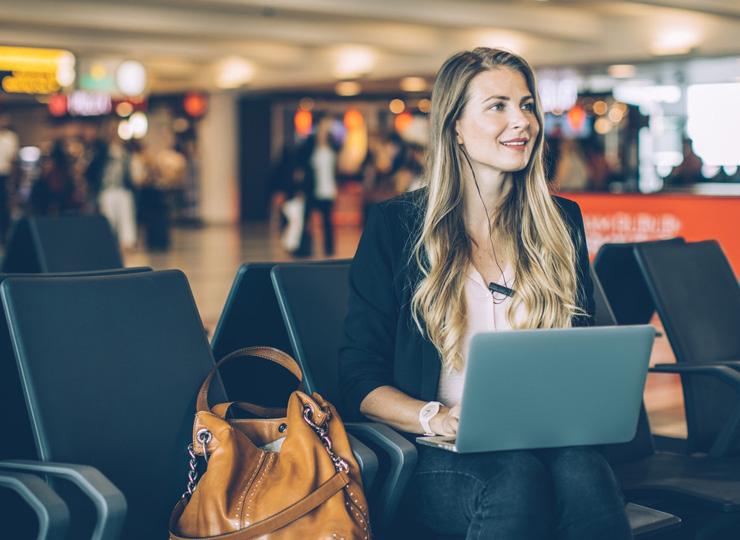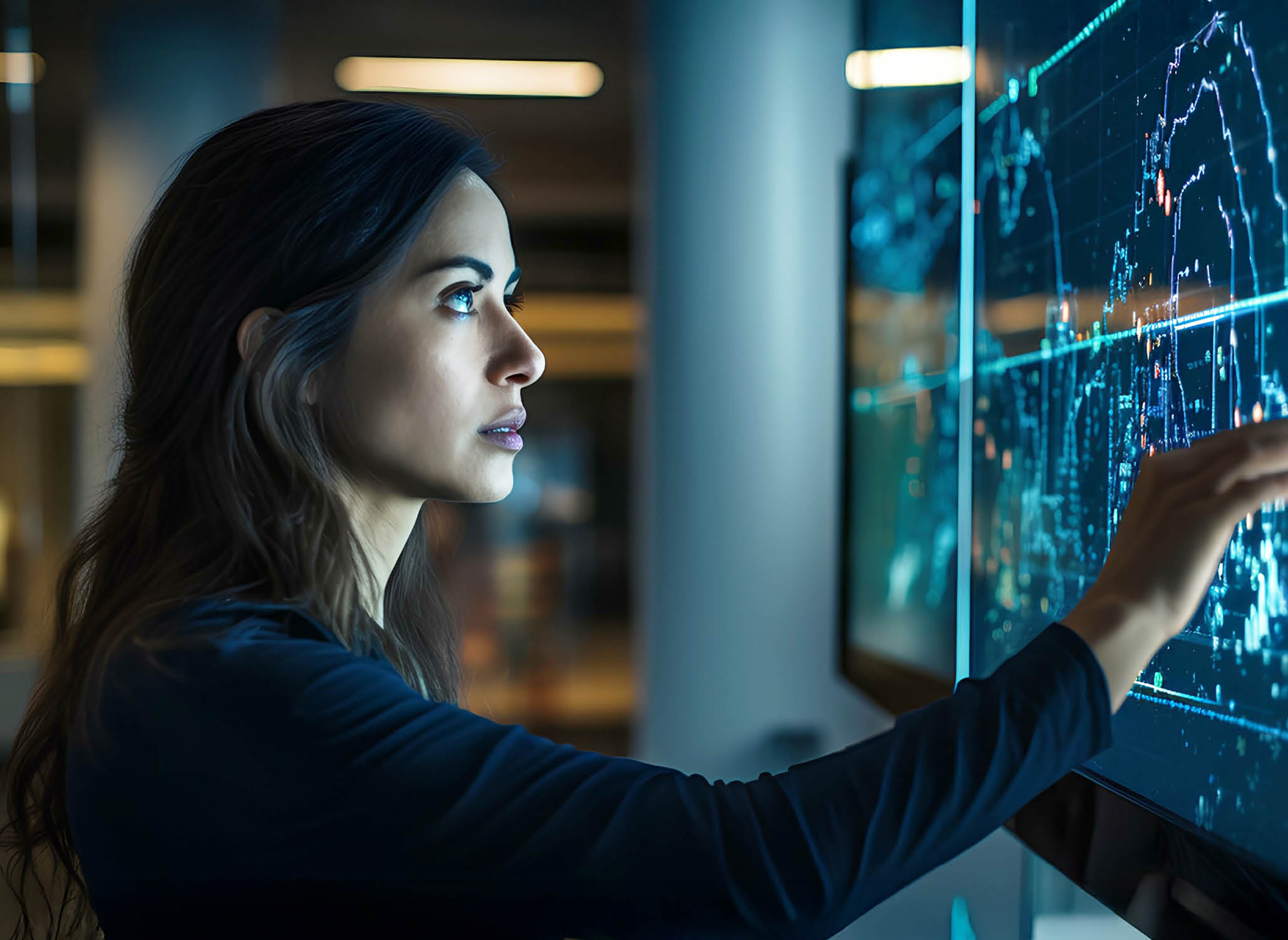

What is AI and how will it change business travel?
You’ve probably heard about artificial intelligence (AI) more times than you can count. It’s on the news, in your social feeds, and maybe even a topic of conversation in your office. But if you’re still not exactly sure what it is or how it could change the way you travel for business, you’re in good company.
To clear things up, we sat down with CTM’s Global Head of AI and Machine Learning, Eric Ediger, to make sense of all the AI tech talk and explain, in plain English, what AI means for business travel.
Over the course of our discussion, Eric broke down:
- What is AI, and how is it different from other software development?
- How is AI already improving the travel supply chain?
- How will AI change the business travel experience for travellers and travel bookers?
- What are the challenges in AI development for corporate travel?
- What’s next for AI in the next three to five years?
What is AI, and how is it different from other software development?
It’s a big question, but here’s the gist. Most software you’ve used works like a recipe, step-by-step instructions that the system follows the same way every time. AI is different. It can learn from data, recognize patterns and adapt as it goes.
In business travel, that means you can ask for something vague, like “find me the best option for a quick trip next week,” and AI will consider your past bookings, current prices, even things like layover times and come back with a smart, personalized option. Traditional software can’t do that. It just filters by the rules you give it.
How are AI applications improving the travel supply chain?
The supply chain is where AI is already making waves. Instead of relying on fixed prices or manually set schedules, AI is constantly scanning huge amounts of data, customer demand, competitor prices, local events, even the weather and adjusting flights, hotel rates, and availability in real time.
AI predicts demand, tweaks fares and rates in real time, and can adjust hotel inventory or car fleet positioning before you even know demand has shifted. Behind the curtain, it’s also helping airlines with things like crew scheduling, gate assignments, and maintenance checks, all to reduce delays and keep things moving.
Think of it like switching from a paper map to live GPS. The route changes in real time, but you barely notice; you just get where you need to go.

How will AI change the business travel experience for travelers and travel bookers?
It’s going to make things faster, smarter, and less stressful.
For travel bookers, it’s about cutting down the time it takes to find the right option. Instead of trawling through dozens of results, AI can pull in prices, preferences, and availability, then give you a shortlist in seconds.
For travelers, that could be as simple as a message that pops up before you’ve even realised there’s an issue: “Gate change to 22B. Boarding in 15 minutes.” Or your flight’s been cancelled and, before you’ve finished your coffee, the AI has already rebooked you on the next best option, no phone calls, no waiting on hold.
Imagine asking a chatbot a question at 11 p.m. and getting an instant answer, or having your trip rebooked automatically after a cancellation. Plus, AI security systems can detect unusual activity and stop it before it becomes a problem.
What are the challenges in AI development for corporate travel?
Not everything is always smooth sailing. First, privacy. AI works best when it can learn from traveler behavior, but that means being crystal clear about what data is collected, why, how long it’s kept, and who can access it.
Then there’s reliability. AI’s smart, but it’s not perfect. It can misread unusual situations, so we always need a way for humans to step in when something doesn’t look right.
Fairness matters too. If the system learns from biased data, it could start making biased decisions, favouring certain routes, travelers, or prices. We work to prevent that with regular testing, diverse inputs and explainability checks.
Integration is another hurdle. Some travel systems are decades old. Connecting them to AI takes time, investment and a lot of careful testing. And finally, change management. Bringing in AI means new processes, training, and clear accountability for outcomes. You can’t just ‘switch it on’ and expect everyone to adapt.
My advice when it comes to AI is to start small, set measurable goals, keep humans in the loop, and adjust as the system learns.
What can I expect from AI in the next 3 to 5 years?
This is where it gets exciting. Soon, booking a trip might be as easy as sending a quick message: ‘Trip to Chicago next month.” AI will take it from there, booking your flights and hotels, suggesting ways to make the trip more efficient (or maybe extend it for leisure), adding extras like transfers or meeting rooms, and adjusting your itinerary automatically if something changes.
It’s also going to help companies make smarter choices, balancing cost, traveler comfort, and sustainability. You’ll see travel that’s more connected, more personalised, and more proactive than anything we’ve had before.”

Discover how CTM is harnessing AI to deliver smarter, faster solutions for our customers.
Contact CTM today to learn more.




